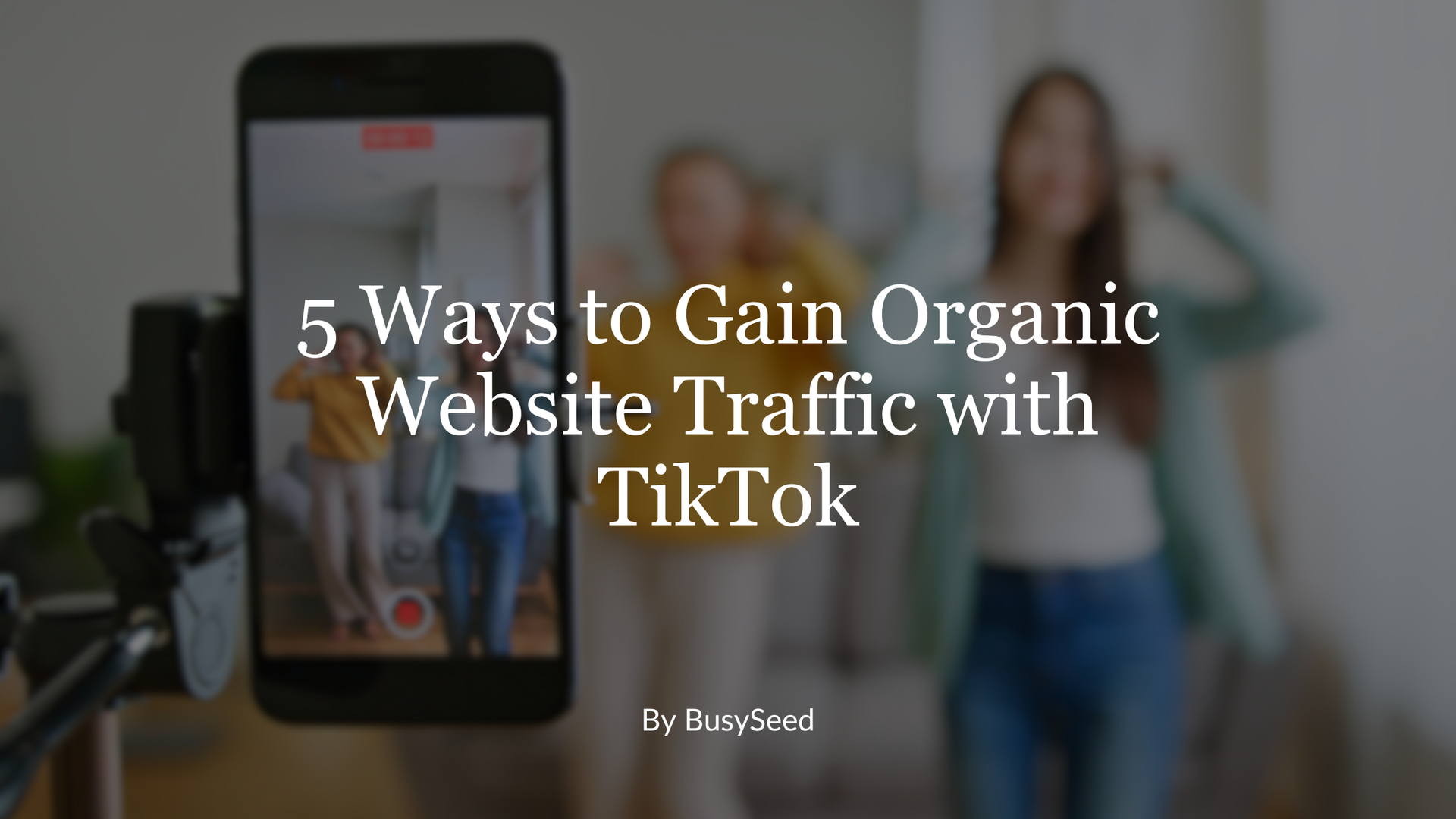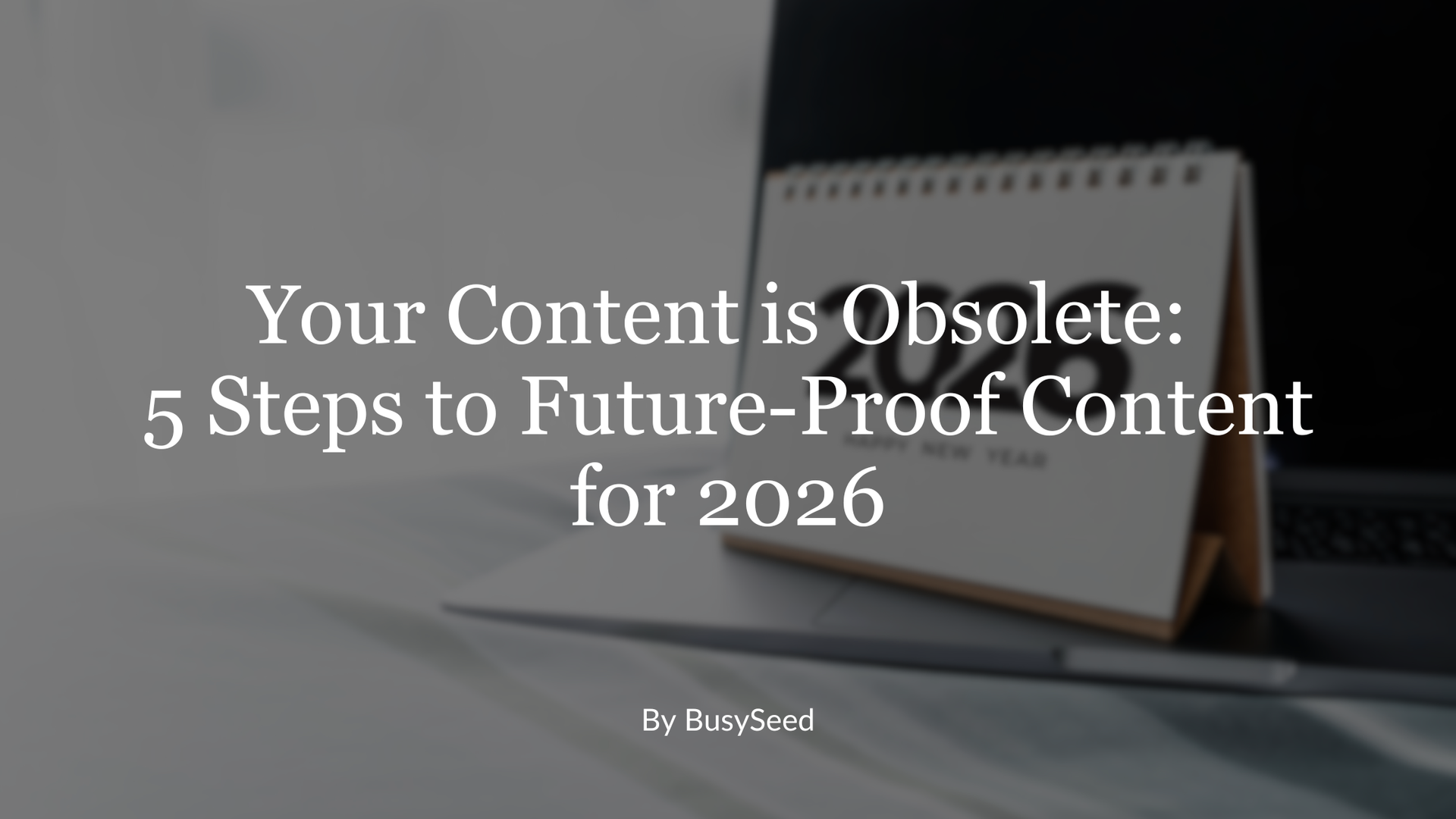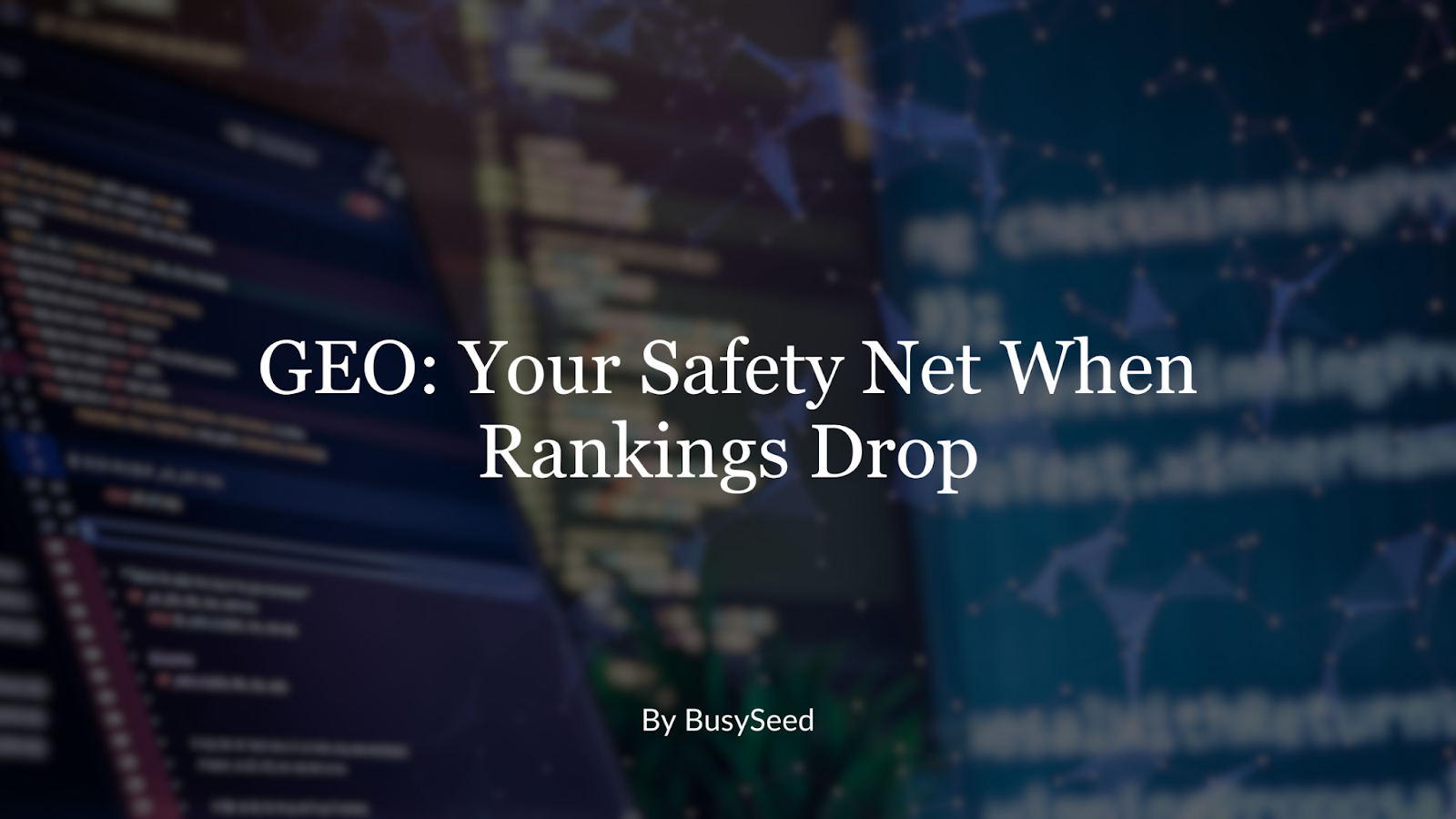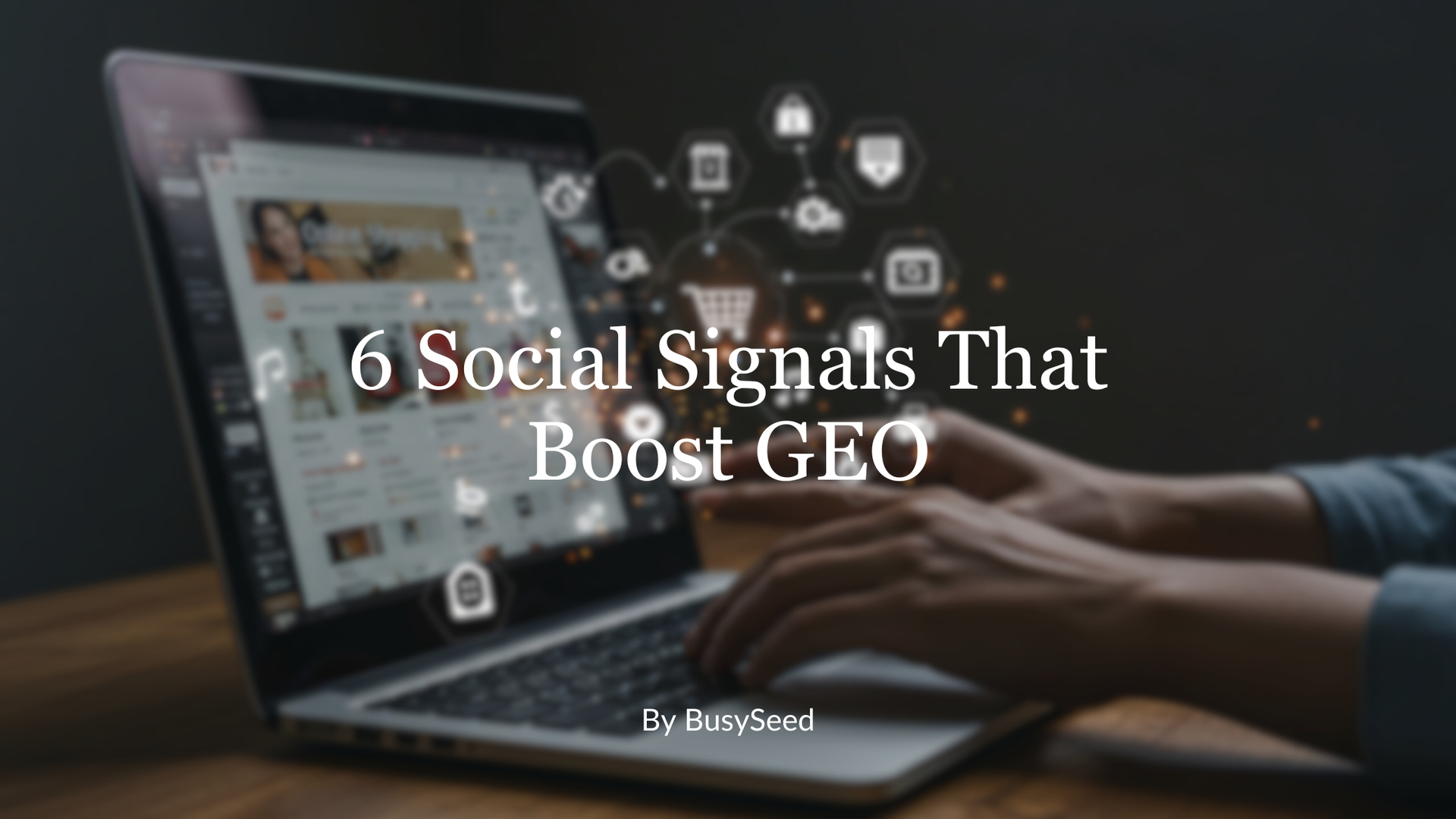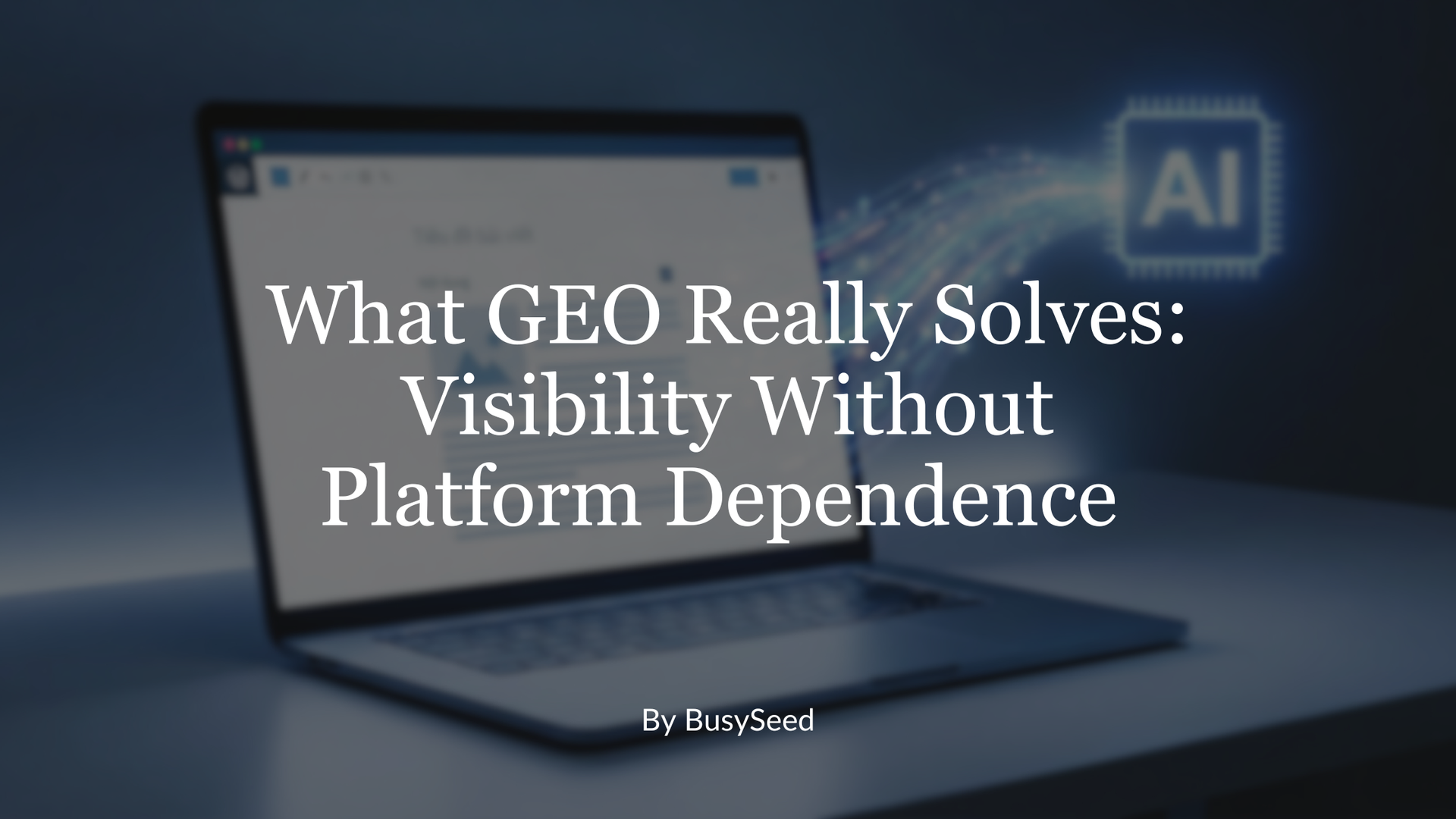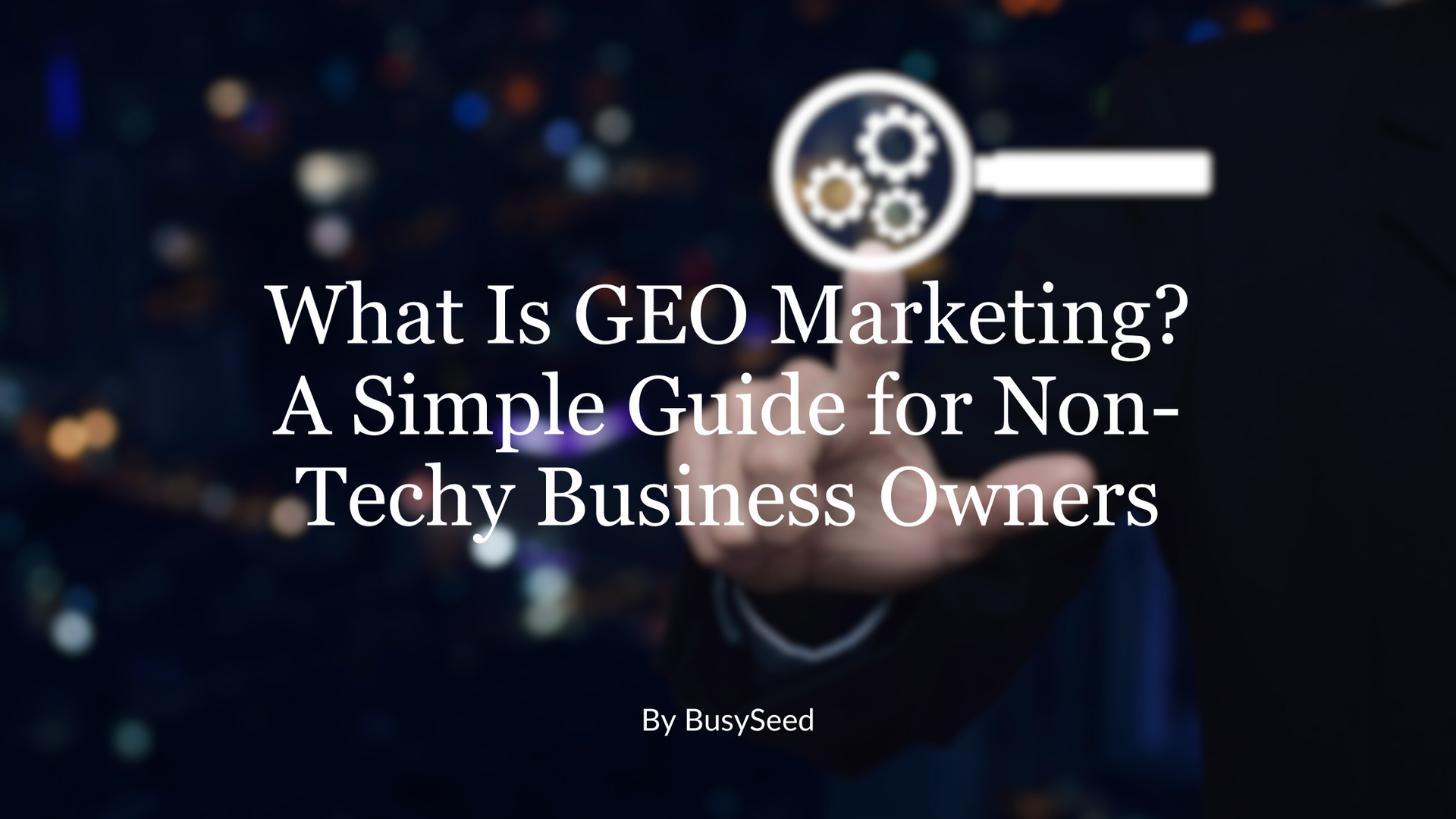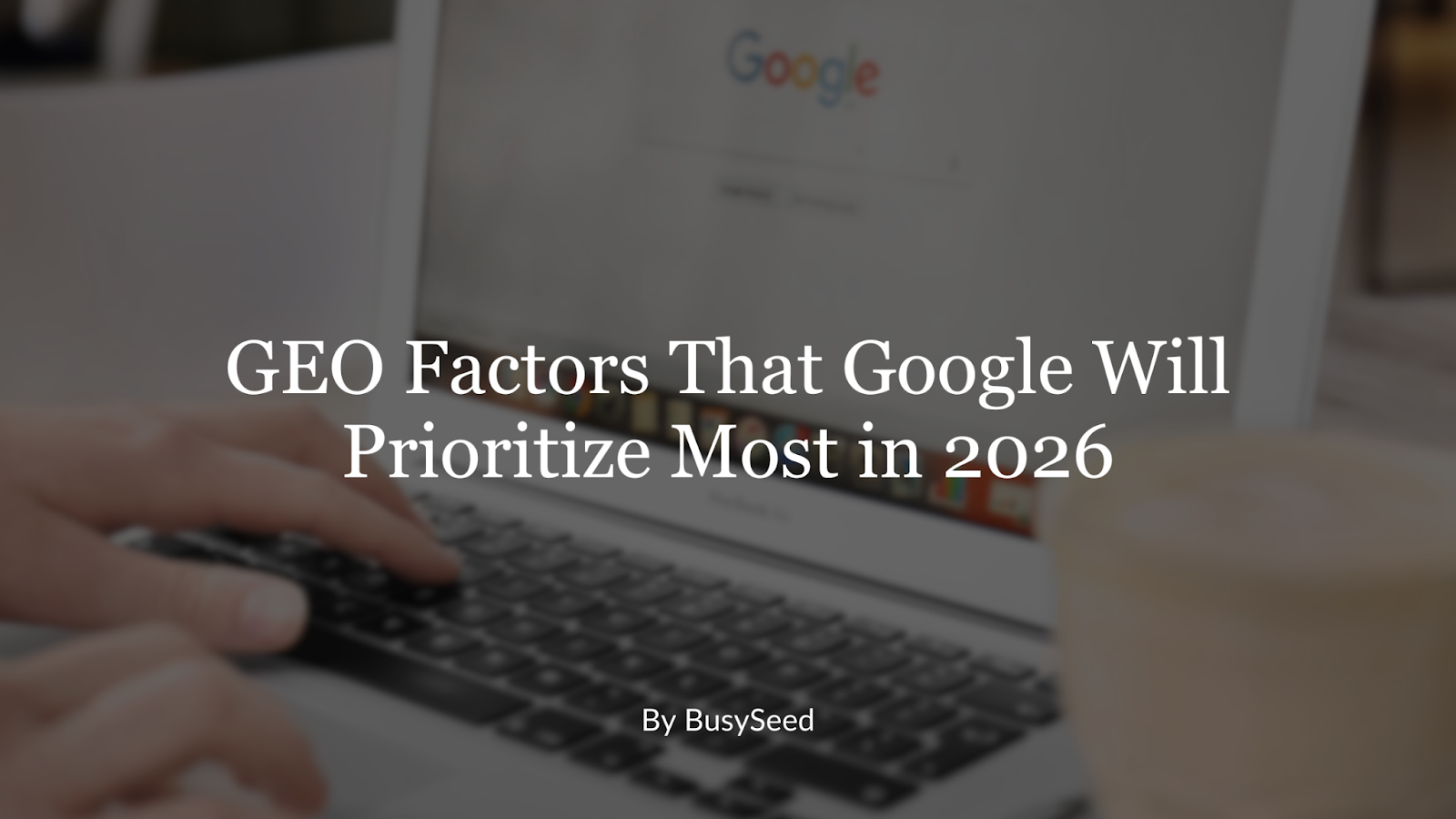Balancing Personalization and Privacy in AI Marketing
In AI marketing, finding the sweet spot between personalization and privacy can feel tricky. Let’s dive into how you can use AI to tailor experiences without crossing privacy lines, just like the leading agencies in New York do.
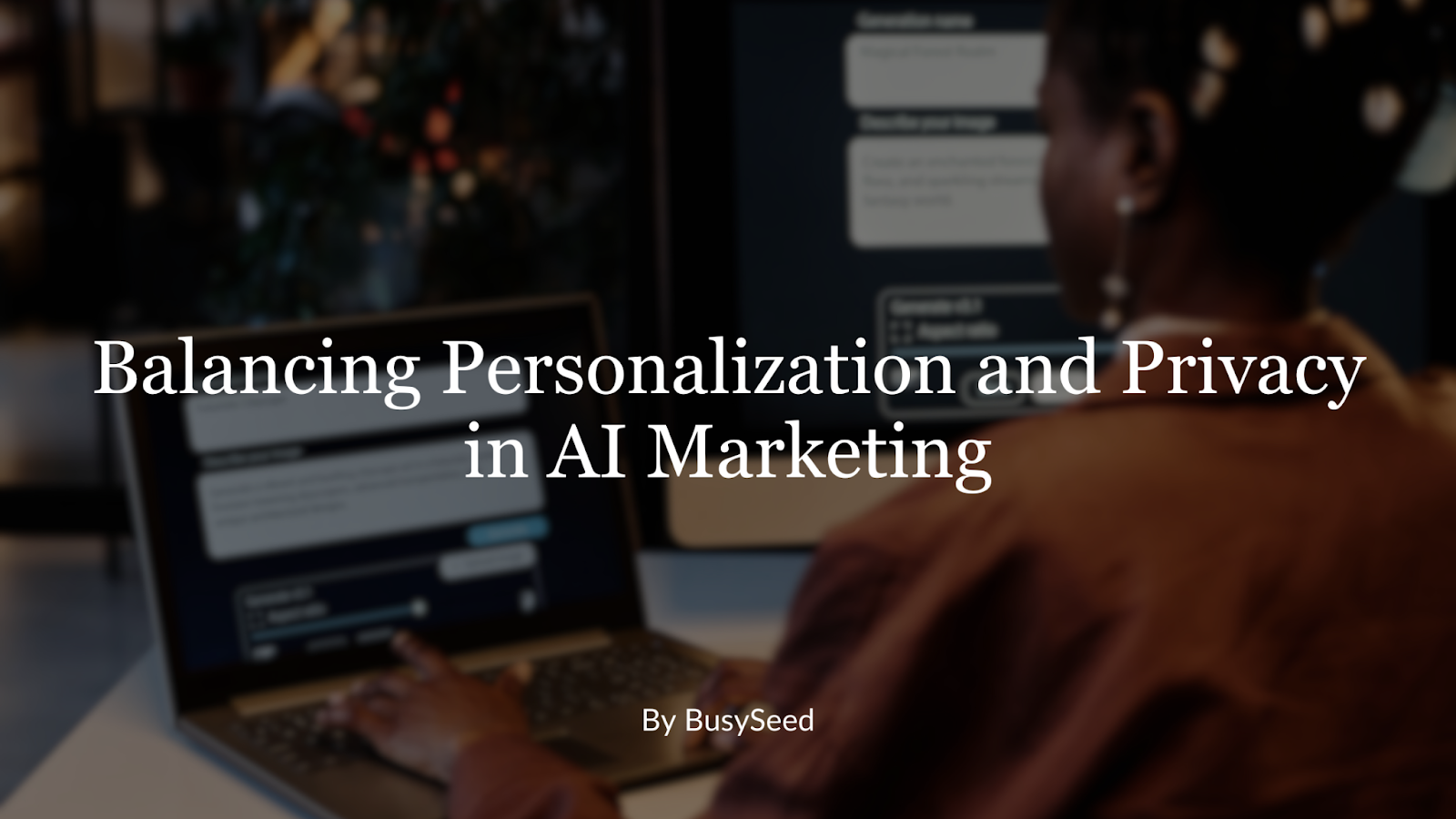
Balancing Personalization and Privacy in AI Marketing: A Guide for Business Owners
Artificial intelligence (AI) is revolutionizing marketing, transforming how businesses connect with their customers. Through AI-driven personalization, companies can deliver highly relevant and timely experiences that drive engagement, loyalty, and, ultimately, revenue. Whether it’s automated recommendations, customized emails, or personalized ads, AI allows businesses to understand customer behavior at a scale that was once impossible.
Consumers are more concerned than ever about how their data is collected, stored, and used. Regulations such as the General Data Protection Regulation (GDPR) in Europe and the California Consumer Privacy Act (CCPA) in the United States have raised the bar for data privacy. Today’s customers expect transparency and ethical handling of their personal information.
The challenge for business owners, including those working with
top NYC advertising agencies, is clear: How do you balance the need for AI-powered personalization with respect for user privacy in AI applications? This guide will help you navigate this complex but critical issue, ensuring you can harness the power of AI while maintaining customer trust.
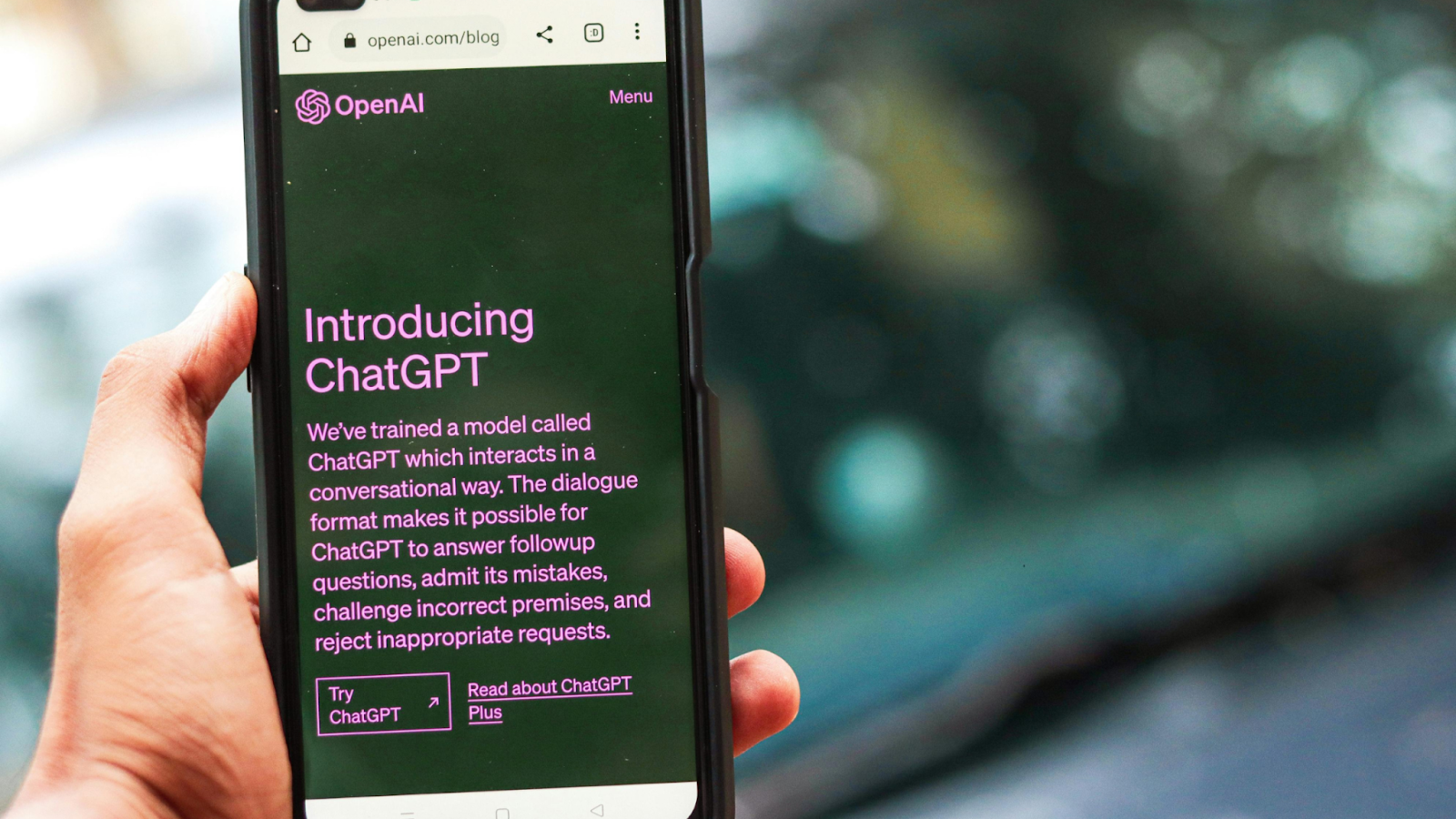
The Importance of AI in Marketing
Why AI Personalization Matters
AI marketing tools have become indispensable in modern business strategies. Whether you’re a startup looking to build your customer base or an established enterprise aiming to stay competitive, AI personalization is a game-changer.
AI has revolutionized marketing by allowing businesses to:
- Analyze vast customer data to tailor content, recommendations, and ads.
- Automate communication through chatbots and AI-driven email marketing.
- Improve targeting and segmentation for increased engagement.
- Optimize ad spend by placing the right ads in front of the right audience at the right time.
According to a 2023 survey by
Statista, nearly 72% of consumers expect brands to offer personalized experiences, and 80% are more likely to do business with companies that provide such customization.
Where User Privacy in AI Applications Comes into Play
While personalization drives engagement and revenue, it also concerns how consumer data is collected and used. Studies show that 79 consumers are concerned about how companies use their data, with many expressing skepticism about AI-driven decision-making.
Businesses must prioritize user privacy in AI applications and ensure data collection, storage, and application transparency to maintain trust and compliance.
Key Challenges When Balancing Personalization and Privacy
Achieving personalization while respecting user privacy in AI applications requires navigating several key challenges:
1. Data Collection and Compliance
Strict regulations like GDPR and CCPA require businesses to obtain explicit user consent before collecting personal data. Companies—especially top NYC advertising agencies—must ensure their AI systems comply with data privacy laws to avoid legal repercussions and loss of trust.
2. Transparency and Consumer Trust
Users want to know how their data is used. Marketers must be transparent about data collection methods, emphasizing secure handling without misleading consumers.
3. Ethical AI Decision-Making
AI models are only as ethical as the data they’re trained on. If businesses use biased or unethical data sets, AI can produce unfair outcomes, damaging customer relationships and creating ethical concerns.

Best Practices for Ethical AI Personalization
Striking a balance between personalization and privacy requires a thoughtful approach. These best practices can help you deliver tailored experiences while respecting your customers’ privacy.:
1. Implement Privacy-Focused AI Technologies
Different technologies allow businesses to personalize marketing efforts without compromising individual privacy. Some of the most effective solutions include:
- Federated Learning: Allows AI models to learn from decentralized data sources without exposing individual data.
- Differential Privacy: Injects noise into datasets to prevent identification of individual users while still offering valuable insights.
- Zero-Party Data Strategies: Encourage users to provide data voluntarily rather than relying on tracking mechanisms.
2. Use First-Party Data Instead of Third-Party Cookies
With Google phasing out third-party cookies, businesses should shift to collecting first-party data—information users willingly share through website interactions, loyalty programs, and surveys. This approach ensures compliance while offering rich insights that fuel personalized AI marketing.
3. Offer Clear Opt-In and Opt-Out Mechanisms
One reason brands lose trust is unclear data policies. Users should be able to easily opt in or out of data tracking and clearly explain how their data will be used to improve their experiences.
4. Employ AI for Anonymization
AI can anonymize and aggregate data, preventing the identification of any individual user while still extracting meaningful insights for personalized AI marketing efforts. Leading New York ad agencies increasingly leverage anonymized data to balance personalization with privacy.
5. Monitor AI for Compliance and Bias
Regular audits can help ensure your AI model remains compliant with data laws. At BusySeed, we recommend using AI ethics frameworks to detect bias and maintain transparency in decision-making.
How Leading New York Ad Agencies Handle AI Privacy and Personalization
Many top NYC advertising agencies are setting industry benchmarks for ethically leveraging personalized AI without compromising data privacy.
Key Strategies Used by NYC Ad Agencies:
- Predictive analytics to refine customer personas without invading personal data.
- Contextual advertising instead of behavioral tracking.
- Privacy-first AI marketing tactics, such as federated learning and encryption.
These approaches demonstrate that businesses can deliver exceptional personalization without sacrificing trust.
Future Trends: How AI Marketing Will Evolve
The AI landscape is rapidly evolving, and businesses must stay ahead. Here are some future trends shaping the industry:
- AI-driven personalization without personal identifiers (advanced AI models capable of customization without directly identifying users).
- Blockchain for data privacy (decentralized storage offering increased security).
- Regulation-driven innovation (companies will adopt more privacy-conscious AI to comply with stricter regulations).
Businesses proactively adapting to these trends will maintain a competitive edge while ensuring ethical marketing practices.
Conclusion: Achieve the Perfect AI Balance with BusySeed
Balancing personalization and privacy in AI marketing can be challenging. However, with the right strategies, businesses can offer tailored experiences while safeguarding user trust.
At BusySeed, one of the top
New York ad agencies, we specialize in helping brands navigate this fine line with cutting-edge AI marketing solutions that prioritize engagement and privacy. Whether you’re a startup or an enterprise, we’re here to craft data-driven, ethical AI strategies tailored to your needs.
Want to implement AI personalization without compromising privacy?
Schedule a free consultation with BusySeed today!



